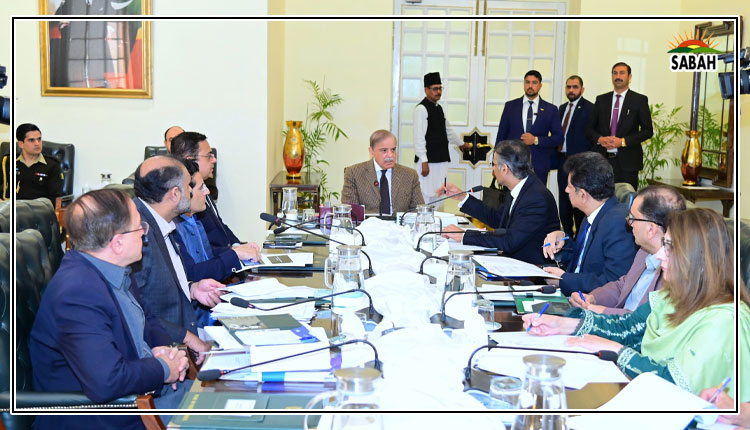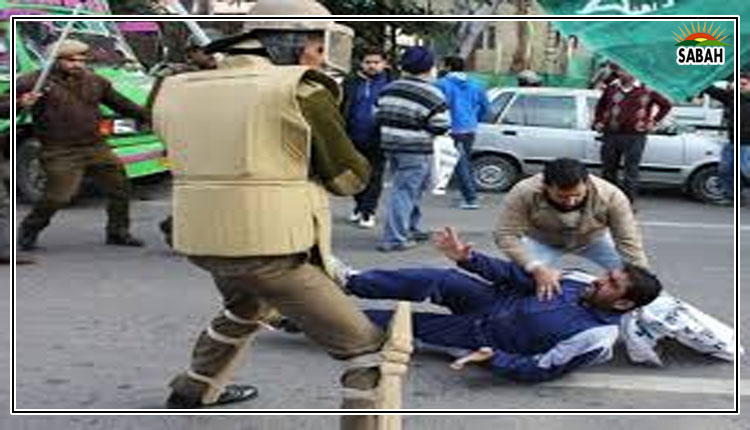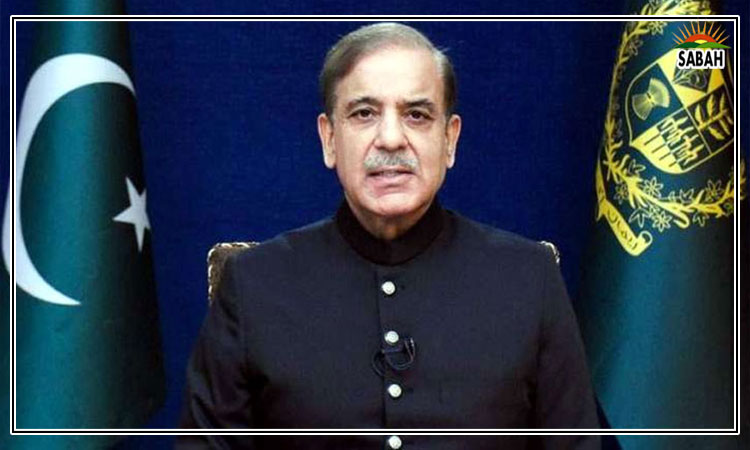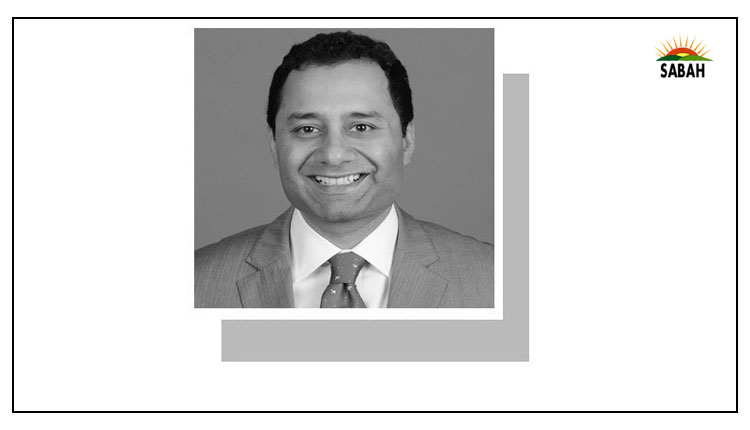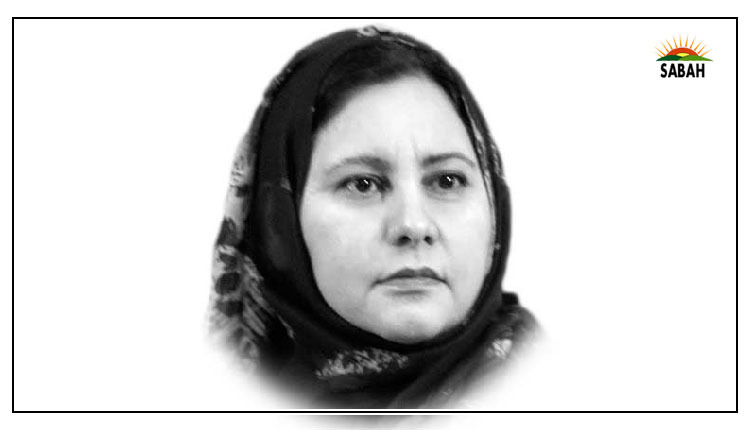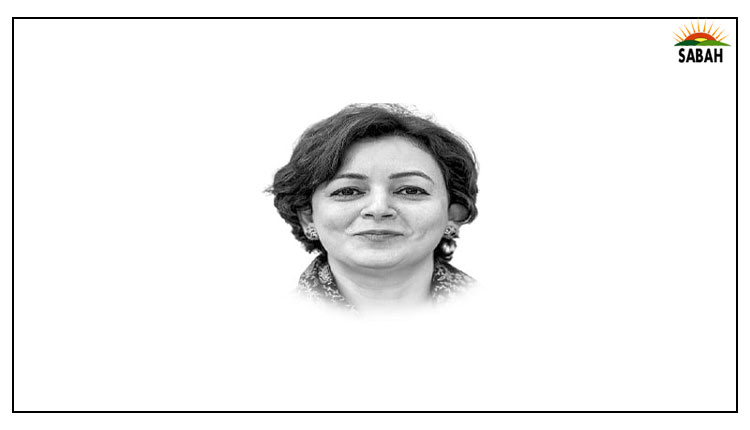CJP Umar Ata Bandial says political parties wanted to ‘pick and choose’ the bench for ‘desired judgments’
ISLAMABAD, May 02 (SABAH): Chief Justice of Pakistan (CJP) Justice Umar Ata Bandial remarked on Tuesday that the political parties wanted to “pick and choose” the bench for “desired judgments”.
The CJP passed the remarks as the Supreme Court of Pakistan resumed hearing on the petitions challenging the law clipping his office’s powers.
An eight-member larger bench of the apex court headed by CJP Umar Ata Bandial and comprising Justice Ijazul Ahsan, Justice Munib Akhtar, Justice Sayyed Mazahar Ali Akbar Naqvi, Justice Muhammad Ali Mazhar, Justice Mrs. Ayesha A Malik, Justice Syed Hasan Azhar Rizvi and Justice Shahid Waheed heard the case. The three petitions were filed under Article 184(3) of the Constitution by Advocate Muhammad Shafay Munir, Raja Amer Khan, Chaudhry Ghulam Hussain and others.
At the outset of the hearing, CJP Bandial remarked that the bench will hear everyone after Attorney General for Pakistan (AGP) Mansoor Usman Awan shared that some parties in the case would like to address the bench via video link.
The top judge observed that important points, including the independence of judiciary, have been pointed out in the case and is “one of a kind”.
“Our stay order of the last hearing is in place. Law related to the Supreme Court rules are very clear,” said CJP Bandial.
CJP Bandial further stated that the judiciary has “reservations” over the law. “Democracy is an important part of the Constitution and so is an independent judiciary and the federation,” the chief justice said and wondered whether the component of the judiciary can be changed.
The chief justice stressed that independence of the judiciary is a “fundamental right”.
Meanwhile, Pakistan Tehreek-e-Insaf (PTI) lawyer Khawaja Tariq A. Rahim said that the judicial reform bill has become part of the law.
On this point, the court sought record of the debate held in the Parliament and standing committee on judicial reforms.
While the chairman of the Executive Committee of the Pakistan Bar Council (PBC) requested the inclusion of senior judges in the bench. The PBC stated that more than six references have been filed against Justice Mazahar Ali Naqvi who is part of the bench.
However, the PBC’s request for the formation of a full court and exclusion of Justice Naqvi was rejected by the court.
The Supreme Court also rejected the AGP’s request to withdraw its stay order till April 13.
“There is no legal importance of a reference filed against any judge. Until the reference is fixed for hearing, it does not hold any importance,” Justice Bandial said, highlighting that a bench — headed by former chief justice Iftikhar Muhammad Chaudhry — had addressed the issue in a verdict.
“Politics has tainted the judicial process,” the country’s top judge remarked. He maintained that there are also some limitations and restrictions of the federal list with respect to legislative powers.
“See section 55 of the Federal Legislative List,” the CJP said. He added that an independent judiciary is a fundamental component of the Constitution and it cannot be changed.
“It is alleged that the fundamental part of the Constitution was violated through legislation for the first time in the country’s history,” he remarked. He added that the chief justice has the authority to appoint seven senior judges and form a full court.
Only the president, CJP Bandial said, can file a reference as declared by the court in the Iftikhar Chaudhry case.
“A reference against a judge cannot prevent them from working until the opinion of the Supreme Judicial Council,” he said.
The CJP said that the court gave the same decision even in the Justice Qazi Faez Isa case and highlighted that he receives complaints against judges regularly.
“Complaints keep coming against most of the Supreme Court judges including myself,” he added.
Criticising political parties for seeking verdicts based on their wishes, the chief justice said: “Political people want decisions of their choice, not justice.”
The demand for a full court and removal of judges was also made during the elections delay case.
“The decision of the Supreme Court judges is the decision of the court. Every institution is bound to implement the Supreme Court’s orders,” the CJP said.
The bill proposes taking away the individual authority of the chief justice to initiate suo motu proceedings and unilaterally form benches and vests them in a panel comprising the CJP and two senior-most SC judges. It also calls for the right to appeal suo motu decisions.
Action on the bill was preemptively frozen by the court even before it became law last month.
Barrister Salahuddin Ahmed appeared on behalf of the PML-N while Senator Farooq Hamid Naek appeared on behalf of the PPP. Meanwhile, Hassan Raza Pasha represented the Pakistan bar Council (PBC).
At the outset of the hearing, the CJP said that the previous order issued by the court was of an interim nature. He said that democracy was a key component of the country’s Constitution.
“A free judiciary and Centre are also important features of the Constitution,” he said, adding that the case at hand concerned the independence of the judiciary.
CJP Bandial said that the court expected “serious arguments” from the parties in the case, adding that the large bench would have to provide “excellent assistance”.
CJP Bandial also remarked that the law in question was the first of its kind in Pakistan. “This law concerns the third pillar of the state,” he said.
He said that there was no changing the fact that an independent judiciary was a main feature of the Constitution. “It is being alleged that for the first time, a fundamental component of the Constitution has been violated through a [piece of] legislation.”
The court then sought detailed answers from all parties in the case on May 8. The court also sought the parliamentary record of the law as well as the arguments in the relevant standing committee. The hearing was then adjourned for May 8 (Monday).



